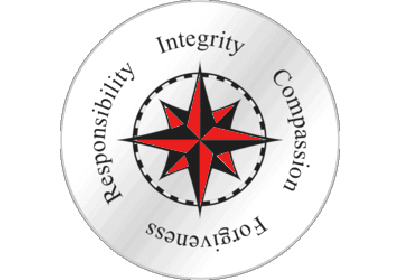With increasing worldwide usage of social networks, smartphones and on-the-go mobile technology, it now looks as if we have to live with transparency. Everything you and I do can and may be recorded and broadcast. How do you feel about this: nervous, trapped, outraged? Or calmly certain that whatever is published about you, your conscience is clear?
It looks as if the only way to live authentically and with complete integrity in the current environment is only to do things of which you are proud. But current affairs stories frequently show us that individuals (and groups) can easily lose their moral compass and find personal justification in carrying out acts which many of us find repugnant.
Which is the ‘right’ direction?
So where in the modern world do you look to find a version of right and wrong that doesn’t conflict with others’ views and with their right to live in peace? From religious belief systems, through the ancient philosophers, to modern approaches to ethics, you could do a lifetime’s reading and studying. But if you want something other than precepts and theories that stem from other people’s thinking, I believe that in the end, you need to look within yourself and really think.
What do you believe is right and wrong in respect of your behaviour towards others? Do you, like many recently exposed people in the public eye, believe that, “it’s OK if nobody finds out”; or “the end justifies the means”? Or maybe you believe that “everyone else is doing it – so we have to”.
Put like that, it sounds quite offensive, doesn’t it? You couldn’t possibly have those beliefs. But please don’t take offence! Just think – and find your own simple basic philosophy which works for you.
Strip away the ‘baggage’
I actually believe that when all the ‘baggage’ – the erroneous, self-preservatory, self-justificatory beliefs that we build up on our journey through our youth – falls away, then it is perfectly obvious what is right and wrong.
So the work you need to do isn’t academic. It doesn’t include years of study (unless that’s what floats your boat). It doesn’t have to include religious or any other beliefs (unless that’s the way you are called). It just involves looking within, and, every time you catch yourself in mean, sleazy, cowardly or dishonest behaviour (and you will!), exploring where the behaviour came from, what you really think about your behaviour, and whether you would admire or condone that behaviour in someone else.
Have you seen my moral compass anywhere?
You’ll find, if you are like the vast majority of sane, mature human beings, that you have a very good moral compass. It just needs practice and daily use. From paying your taxes to telling little white lies, you’ll catch yourself, if you are willing to, in a dozen sleazy little acts and thoughts every day. Clean up your act – and stop rationalising the unacceptable, as if you don’t have a choice. As an adult, you always have a choice. We are all capable of discerning our better selves, a better course of action, better choices.
All the truly great leaders out there learned this lesson as part of their journey to maturity. Actions which are geared towards making yourself look good, or proving your own ‘rightness’ will nearly always cause harm to others. The end by no means always justifies the means. And the price of such careless beliefs and behaviour can be staggeringly high, as several high-profile individuals and far too many innocent bystanders have so sadly recently learned.
